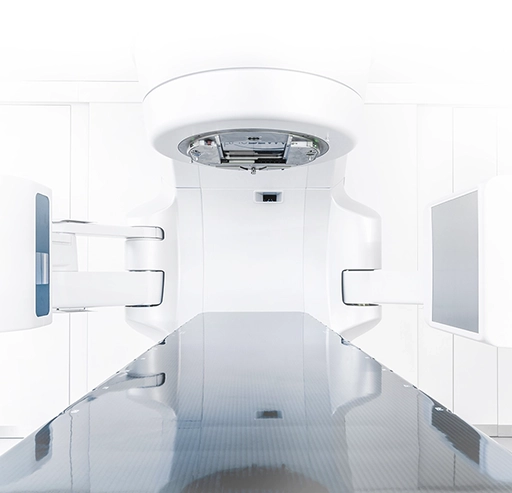OVERVIEW
Versa HD is a unique and advanced radiotherapy platform that is designed to facilitate advanced radiation therapy procedures, such as intensity-modulated radiation therapy (IMRT), image-guided radiation therapy (IGRT), stereotactic radiotherapy (SRT), and stereotactic radiosurgery (SRS). These radiotherapy modalities demand superior precision in terms of tumor targeting and sparing surrounding critical structures and tissues.
Versa HD comes with 3D and 4D imaging features, which help radiologists visualize very small tumors and their movements. This feature largely helps in precisely targeting the tumor and positively impacting the overall treatment outcome.
Through its high-end features, such as advanced beam-shaping, superior imaging, and capability to deliver high-dose-rate radiation, Versa HD is especially helpful in the management of tumors located in critical areas.
Advantages of Radiation Therapy with Versa HD
Versa HD helps specialists treat challenging cancers with sub-millimeter accuracy.
Through dual registration of target(s) and critical structures, Versa HD helps radiologists protect the critical structures close to the tumor while also achieving positive outcomes.
Versa HD can treat small and multiple targets in complex structures, namely the lungs.
Through high-dose-rate radiation delivery, Versa HD helps reduce the overall treatment duration.
Radiation therapy with Versa HD is a non-invasive procedure with relatively fewer treatment-related complications.





